Self Awareness Teaching Resources
Help your students develop self awareness with activities, printables and more social and emotional teaching resources designed specifically for elementary and middle school students.
Created by teachers, for teachers, this collection is full of digital and printable activities designed to help students recognize their emotions and learn to identify their own strengths and weaknesses. Each teaching resource has undergone rigorous review by the Teach Starter team to ensure it's ready for the classroom ... and your students!
Curious about teaching self awareness and wondering how it applies to kids in your classroom? Read on for some tips from our expert teachers!
What Is Self Awareness? A Kid-Friendly Definition
Most students are not terribly self aware when they enter elementary school, and that's completely normal. After all, any adults aren't very adept at self awareness! That's why it's so important to include these lessons in your planning to help students flex those muscles and become more aware of who they are.
So how do you explain the meaning of self awareness to your class, and how do you teach it? Let's start with a kid-friendly definition.
Self awareness means understanding yourself, your feelings and how your actions affect other people.
You might tell your students that being self aware is a bit like having a mirror inside your mind that can help you see who you are and how you can make good choices.
Explain to students that when you're self-aware, you know what you're good at and what you might need to work on so you can become your own superhero.
Why Is Self Awareness Important?
Learning to be self aware is part of gaining control of one's own emotions, thoughts and actions, and the lessons we teach in the classroom contribute to our students' personal growth, social interactions and overall well-being in the immediate future and well into adulthood.
When kids (and adults!) lack self awareness, they tend to struggle with poor decision making, and they may have trouble understanding how their behavior affects others. This can lead to misunderstandings and conflicts with peers and others around them or even unintentional harm to relationships, as they may struggle to empathize or consider the perspectives of others.
Self Awareness Examples for Kids
Explaining self awareness by providing a definition is one thing, but surely you want to dig a little deeper.
Here are some examples from our teacher team that you can use to illustrate what it means to be self aware — and why it's so important!
- Identifying Emotions — Being able to label our emotions with names like happiness, sadness, anger or excitement is a great example of being self aware. For example, your students might learn to say, "I feel happy when I play with my friends at recess."
- Understanding Your Talents — Another example of self awareness that kids can easily relate to is the concept of identifying one's strengths or talents. It can be helpful to consider things we can do well and things we want to work on to get better at. For example, a student might say "I am very good at singing, but I would like to practice my spelling to improve."
- Seeing Strengths in Our Peers — Acknowledging our own strengths is only part of being self aware. It's also good for students to be able to identify (and celebrate) the strengths of others. This will help them build better relationships in the long run.
- Free Plan
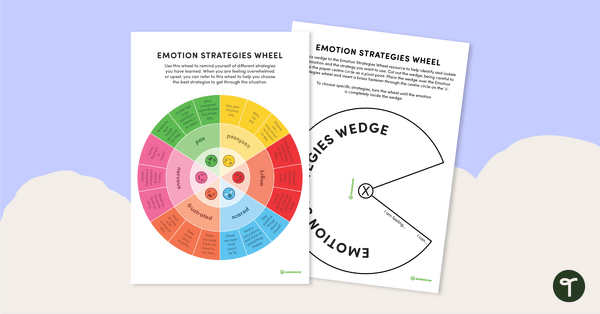
Emotion Strategies Wheel
Help your students self-regulate when they experience "big" emotions with this hands-on emotions wheel with accompanying calming strategies.
- Free Plan
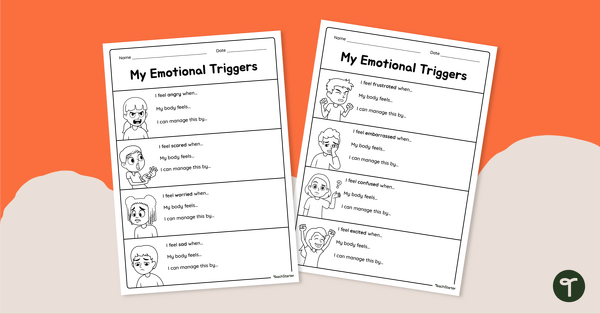
My Emotional Triggers Worksheet
Help your elementary students explore the situations that trigger them to experience certain emotional responses with this 2-page emotional triggers worksheet.
- Free Plan
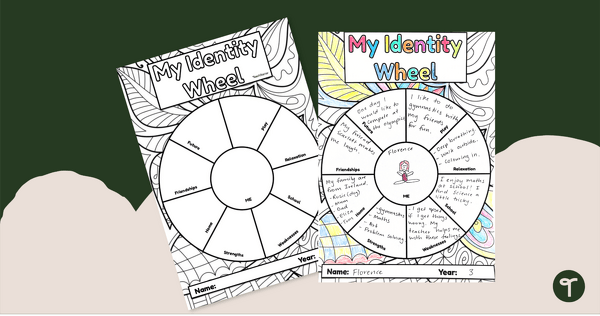
Personal Identity Activity (My Identity Wheel)
Explore personal identity by completing this personal identity wheel.
- Plus Plan
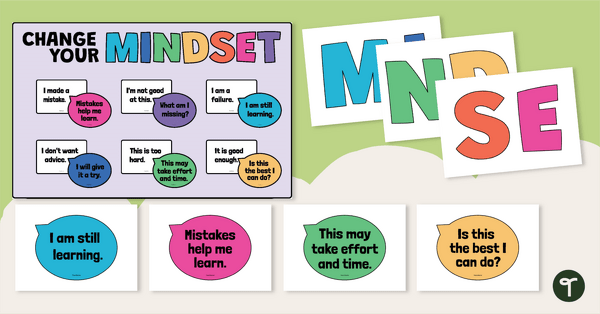
Positive Growth Mindset Posters
Positive growth mindset posters to display in your classroom.
- Plus Plan
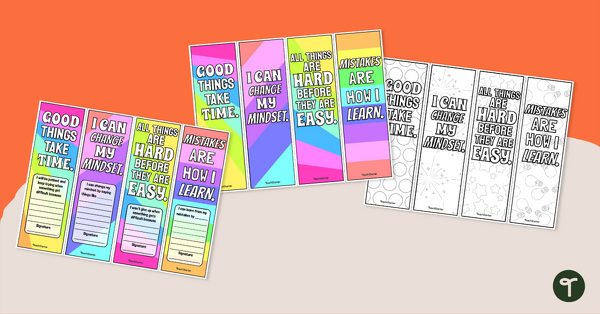
Growth Mindset Bookmarks
Encourage your students to think about their growth mindset with this set of printable bookmarks.
- Free Plan
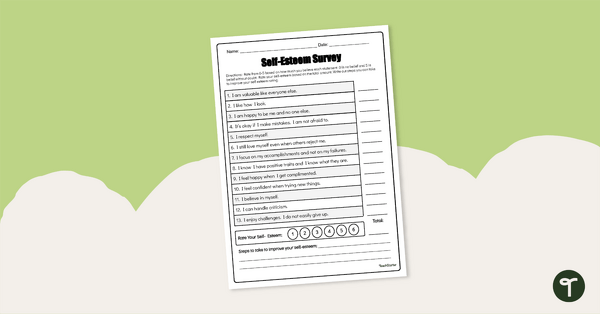
Self-Esteem Survey Worksheet
Explore self-esteem with your students with this self-esteem survey.
- Free Plan
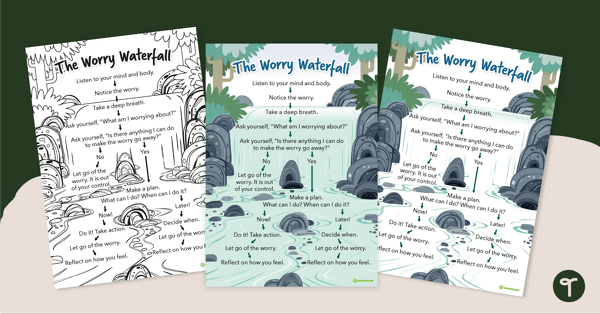
The Worry Waterfall – Anxiety Management Poster
Teach your students how to deal effectively with worrying thoughts with this classroom poster.
- Free Plan
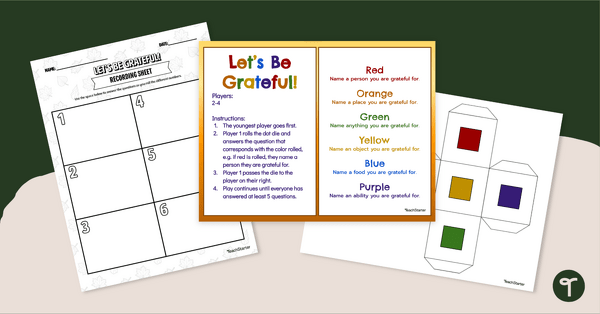
Let's Be Grateful! - Gratitude Game for Kids
Roll, write, and share what you're thankful for this year with a printable Thanksgiving Gratitude game for kids.
- Plus Plan
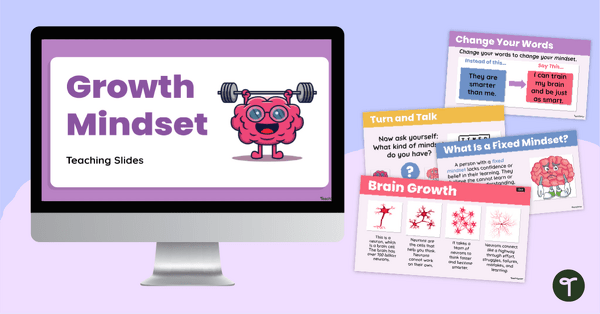
Growth Mindset Teaching Presentation
Help your students develop a growth mindset with a Growth Mindset Teaching Slide Presentation.
- Plus Plan
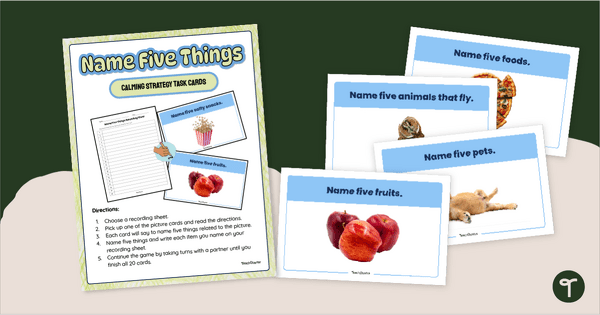
Name 5 Things - Calming Strategy Task Cards
Use the ‘Name 5 Things’ Calming Strategy in your classroom to help students regain self-control with printable calming activity task cards.
- Free Plan
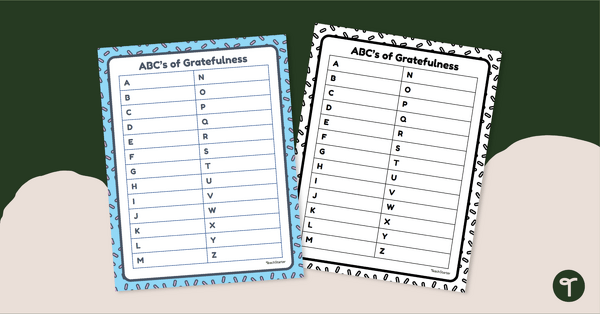
ABC's of Gratefulness - A to Z Gratitude List
Make a list of things to be grateful for with a printable A to Z gratitude list template.
- Plus Plan
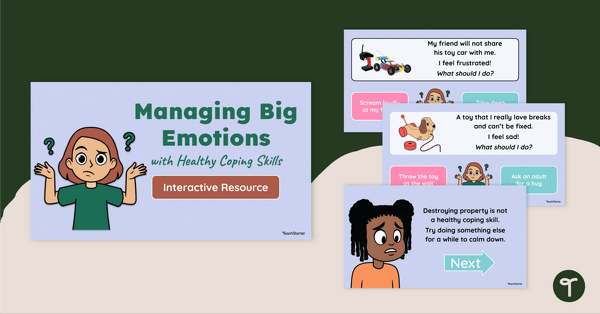
Managing Big Emotions – Interactive Activity
Teach students how to manage emotions using healthy coping skills with this interactive scenario game for the early years classroom.
- Free Plan
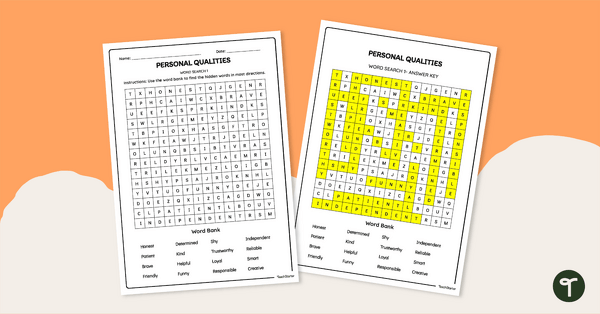
Personal Qualities Word Search
Explore different personal qualities with your students with this printable personal qualities word search.
- Plus Plan
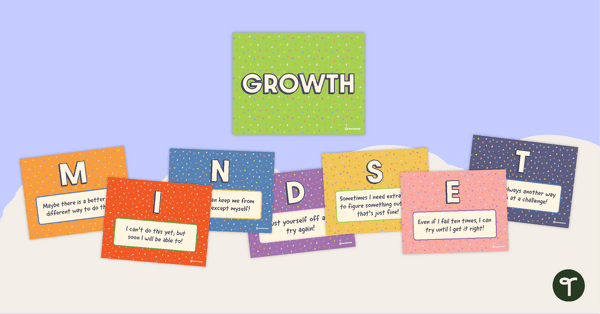
Growth Mindset Bulletin Board
Remind your students to have a growth mindset with this bulletin board display.
- Plus Plan
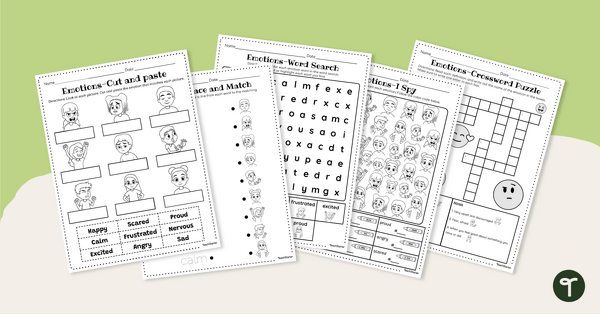
Emotions Worksheet Pack
Help students understand different emotions with this set of five emotions worksheets.
- Plus Plan
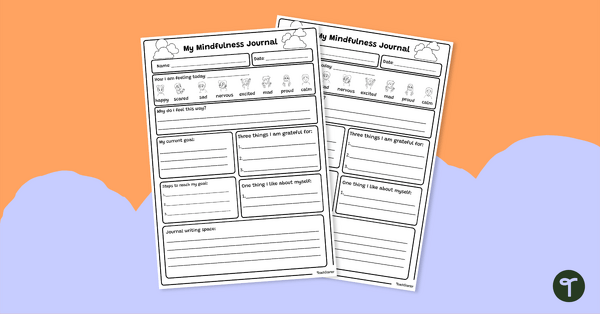
Mindfulness for Kids - Daily Journal Worksheet
Create a mindfulness journal by printing your students copies of reflective mindfulness worksheets.
- Plus Plan
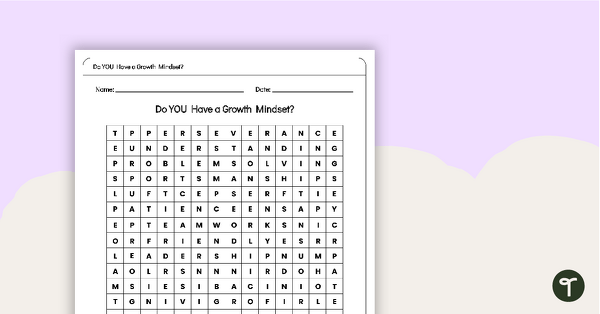
Do YOU Have a Growth Mindset? – Word Search
Use this word search activity to show students the qualities and characteristics of creating a growth mindset in the classroom.
- Plus Plan
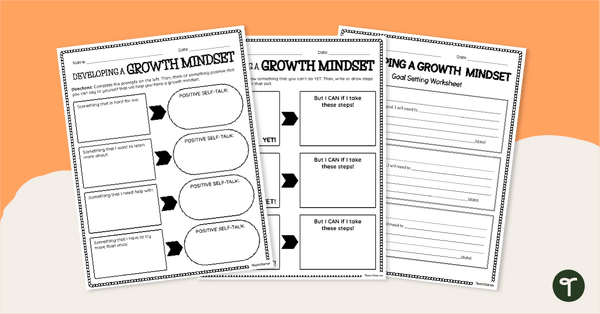
Developing a Growth Mindset Worksheets
Help your students develop a growth mindset and set achievable goals with a printable pack of growth mindset worksheets.
- Free Plan
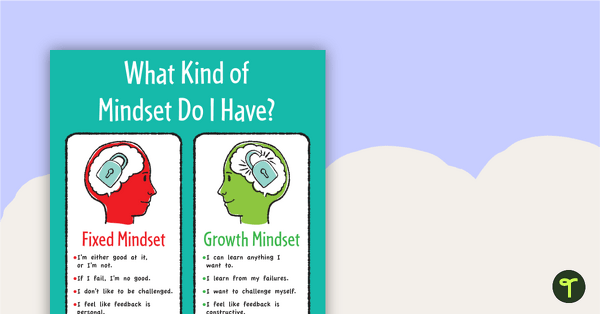
Growth and Fixed Mindset Poster
Help your students decide which type of mindset they currently have with this poster.
- Plus Plan
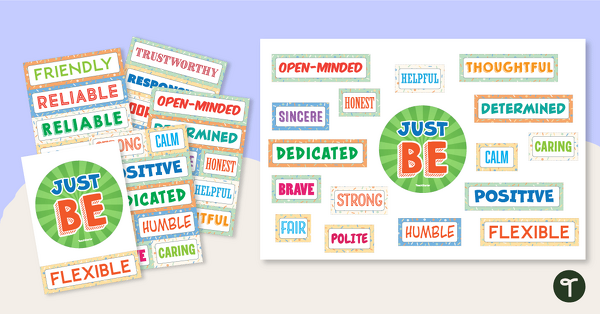
Positive Character Traits - Motivational Bulletin Board
Set an optimistic tone and promote positivity with a Just Be…One Word Motivational Bulletin board.
- Plus Plan
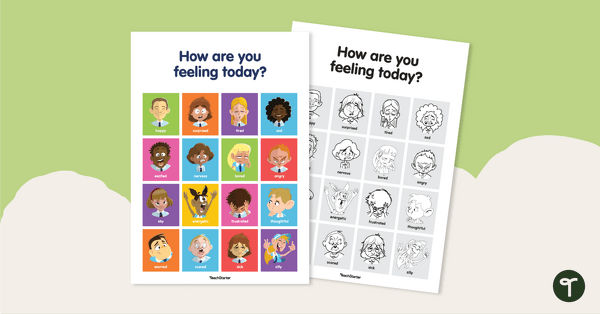
How Are You Feeling Today? Chart
Help students to recognize and identify their feelings and emotions with this colorful 'How Are You Feeling Today?' Chart.
- Plus Plan
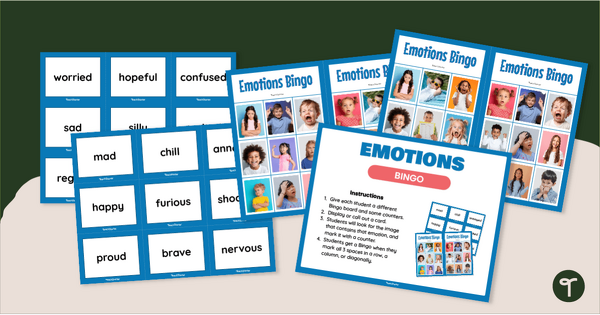
Emotions Bingo
Play Emotions Bingo to help your little learners practice recognizing emotions.
- Free Plan
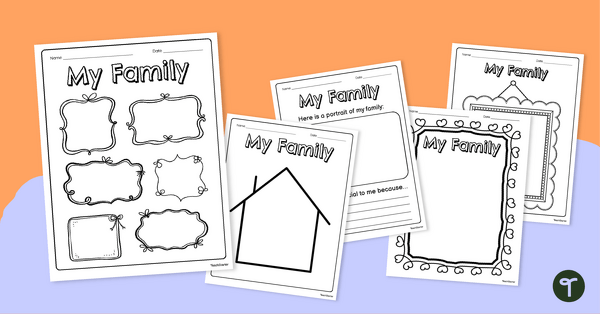
My Family Portrait Templates
Encourage your students to explore their identity through these Family Portrait Worksheets Templates.
- Plus Plan
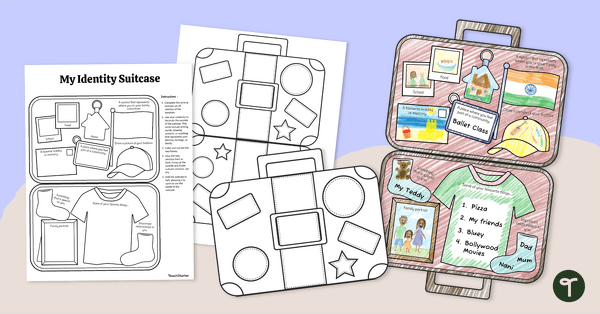
My Identity Worksheet - Suitcase Template
Use this My Identity Worksheet to help students unpack who they are and what makes them special.
- Plus Plan
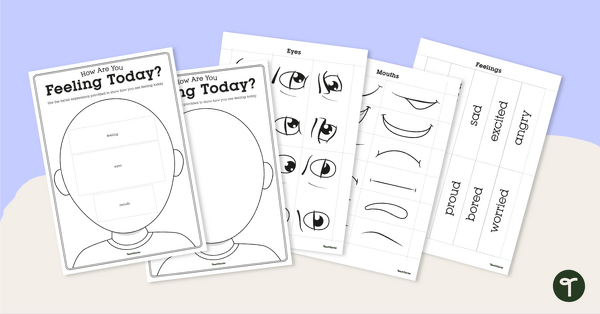
Emotional Awareness Face Template
Teach your students emotional awareness with this customizable face template perfect for lessons focused on social-emotional learning.
- Plus Plan
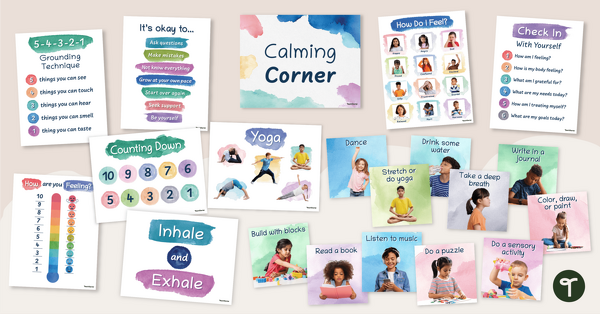
Calm Down Corner Classroom Decor Pack
Create a classroom calm-down corner with a printable Calming Corner Decor Pack.
- Plus Plan
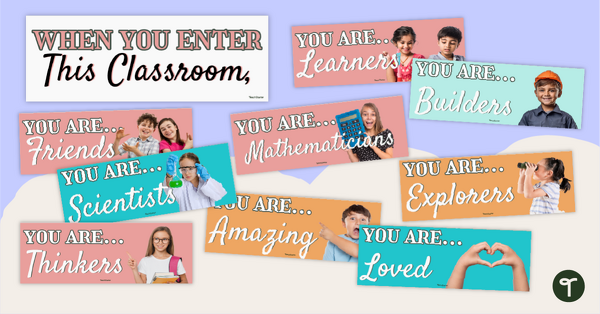
When You Enter This Classroom - Door Decor Display
Welcome your students into your classroom with ‘When You Enter This Classroom” Door Decor.
- Plus Plan
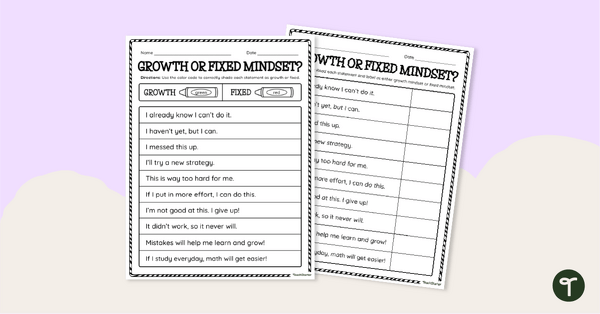
Growth vs. Fixed Mindset Statements - Worksheet
Assess student understanding about the different statements that one might say to distinguish between having a growth or fixed mindset.
- Plus Plan
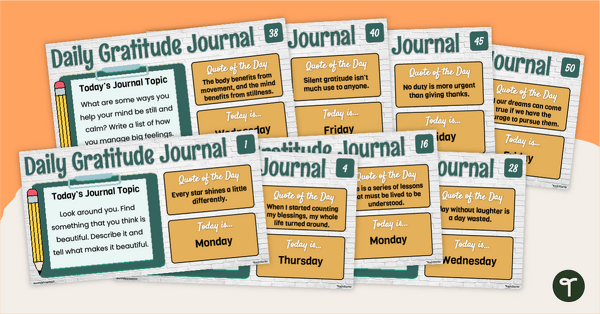
50 Gratitude Journal Prompts for Kids - Slide Deck
Project and inspire reflective writing with 50 gratitude journal writing prompts in one handy slide deck.
- Plus Plan
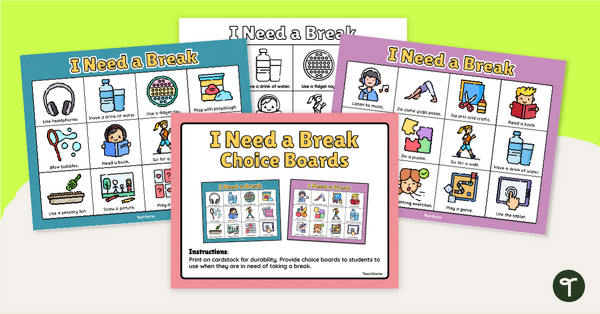
I Need a Break - Choice Boards
Help upset students regulate their emotions in the classroom with our printable ‘I Need a Break!’ choice boards.
- Free Plan
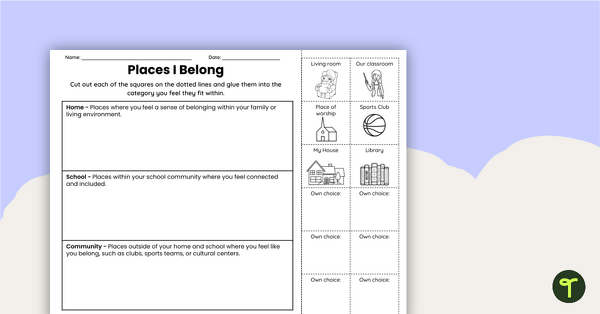
Places I Belong Cut-and-Paste Worksheet
Encourage students to think of the different places they feel a sense of belonging at school and in the home environment.
- Plus Plan
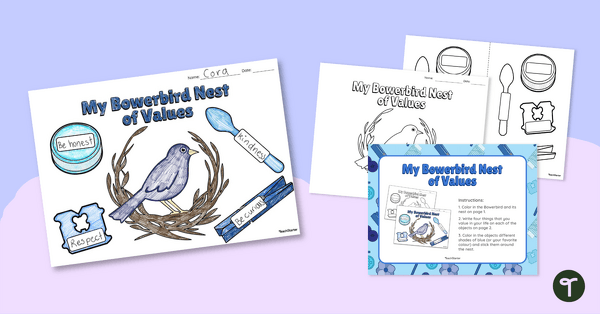
My Bowerbird Nest of Values Template
Help students understand what they value with this Bowerbird nest of values craft template.
- Self Awareness Posters
- Self Awareness Templates
- Self Awareness Worksheets
- Self Awareness Games
- Self Awareness for Kindergarten
- Self Awareness for 1st Grade
- Self Awareness for 2nd Grade
- Self Awareness for 3rd Grade
- Self Awareness for 4th Grade
- Self Awareness for 5th Grade
- Self Awareness for 6th Grade